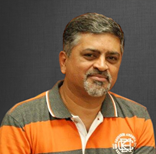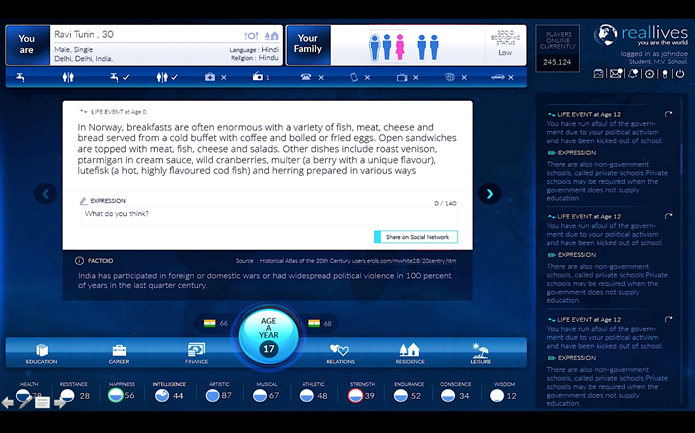
About the Speaker: Parag Mankeekar is a medical & public health professional and an anthropologist. He is currently the founder director of Neeti Solutions, which develops simulations games and interactive learning products for societal challenges. He has closely researched on terrorism and had met terrorist groups in Afghanistan to understand how it impacts nations and lives of the common man.
Parag likes traveling and meeting different people, which helped him to fabricate different components of a real life simulation game. He is an Ashoka and Erasmus Fellow. The below article is an excerpt from the lecture given by Parag as a part of Social Innovation Lecture Series held at Venture Center, Pune.
Talk:
Ever since the industrial revolution, with the introduction of machines and technology, we imagined the world would get closer and become a better place. Our needs made us inventors to seek for solutions to make our life easier and comfortable. However, this development came with a price, which was only accessible to the ones who can afford it. “ The promise of globalization was to create a win-win situation, where consumers in the rich world will get cheaper goods and people in the poor world will get jobs which will help them to get out of poverty”, says John Hilary, Executive Director War on Wants in the documentary True Cost.
During Parag’s travel to Paris, he came across Yann Arthus-Bertrand who worked on the film HUMAN. One of the speakers in the film says, “We invented a mountain of superfluous needs. You have to keep on buying, throwing away. It’s our lives we are dilapidating.”
After 275 years in the industrial revolution, the world faces challenges where 6 billion people are living in poverty, there are war and hate crimes, migrations, xenophobia, climate change and the list goes on. There is inequality in the world at every level in terms of resources, money, and talent. Why are we not able to change it?
What we forgot goes in the old Sanskrit phrase, “Vasudev Kutumbakam” which translates to “the world is one family”. This can only be achieved by having empathy.
Following are the remarks of Barack Obama to Northwestern graduates at 2006 Commencement:
“The world doesn’t just revolve around you.
There’s a lot of talk in this country about the federal deficit. But I think we should talk more about our empathy deficit – the ability to put ourselves in someone else’s shoes; to see the world through those who are different from us – the child who’s hungry, the laid-off steelworker, the immigrant woman cleaning your dorm room.”
This is what the game, ‘Real Lives’ intends to do by enabling people to experience someone else’s shoes without going to the actual place. The game events are simulated based on the authentic statistical data from over 193 countries. A user is born in the game in a different socio-economic condition at any part of the world, experiences different life events and life decision making while living a virtual life. The objective of the game is to enable people to become empathetic global citizens by the use of technology. The game is very well received and currently, ranks no. 2 on CNET.

Figure 1: Snapshot from the game ‘Real Lives’
Through his travel journeys and experiences, Parag has well-connected his passion with Real Lives which shows that if you have a purpose you can be a change maker.
About the Author: Shubham Singh is presently working as the BIRAC Social Innovator at Venture Center, Pune.

